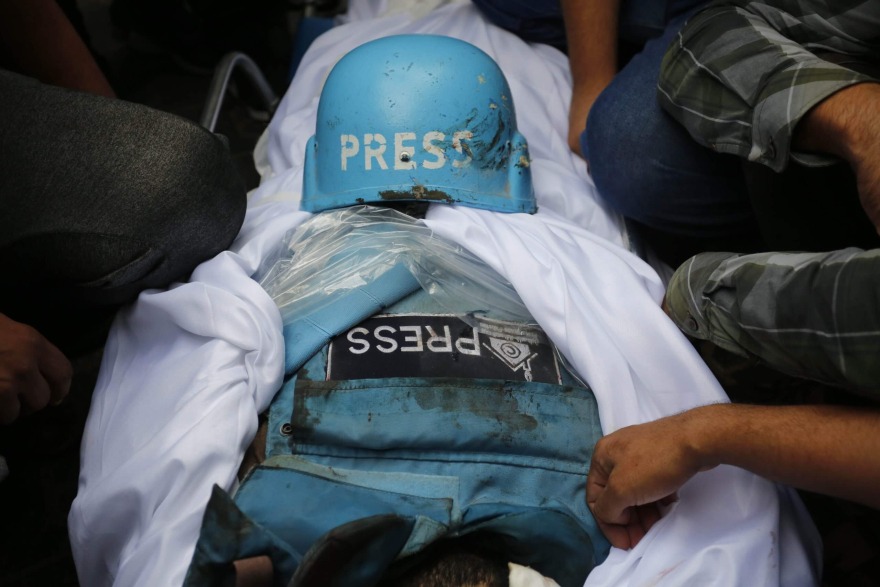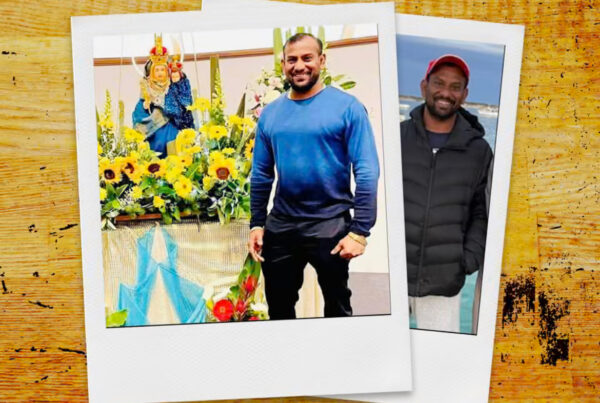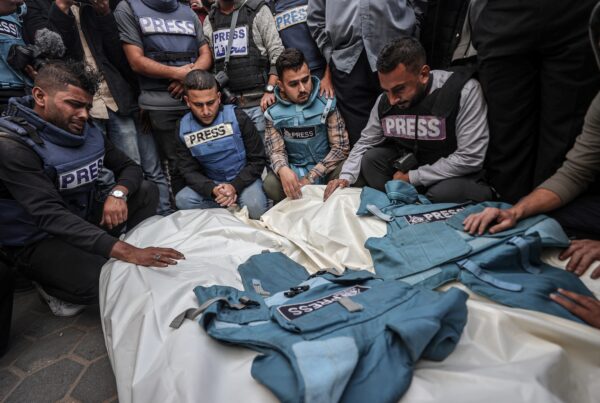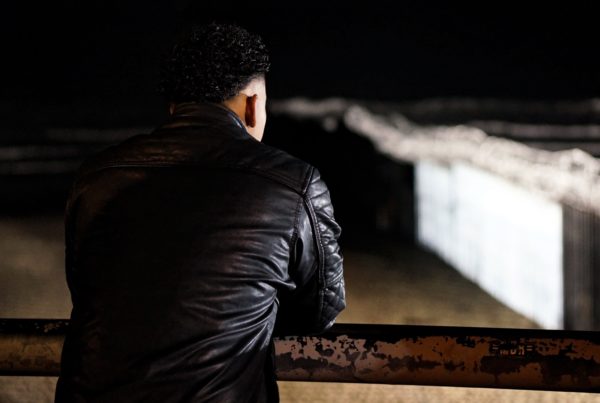The Israeli government’s censorship and propaganda strategies are restricting Israeli media reporting on Gaza, even on the hostages. Israeli law mandates that journalists operating within Israel or writing for Israeli media outlets must submit any articles addressing ‘security issues’ to the Israeli Military Censor for approval before publication. Under these regulations, the censor has the authority to either partially or completely redact submitted articles, as well as those published without its approval. Media outlets are prohibited from disclosing the censor’s involvement.
The Intercept reported in December 2023 that the military censor specifically banned media in Israel from reporting on eight subjects including: weapons used by the IDF; security cabinet leaks; and stories about people held hostage by Hamas.
In 2023, the Israeli military censor barred 613 articles and redacted 2,703 articles, a record number of interferences.
The censor can prosecute journalists, impose fines on media organisations, suspend operations and shut them down.
Left-leaning Israeli newspaper Haaretz has been threatened with financial penalties over its reporting on Gaza. Israel’s Communications Minister, Shlomo Karhi, claimed the newspaper was ‘sabotaging Israel in wartime’ and was an ‘inflammatory mouthpiece for Israel’s enemies’.
Al Jazeera banned in Israel
In April 2024, the Israeli parliament passed a bill that allows the government to ban the broadcasting of international news outlets in Israel, if they are deemed threatening to national security.
One month later, Israel’s cabinet ordered the closure of Al Jazeera’s offices in Israel, blocked its website and banned local media outlets from using the company’s broadcasts. Al Jazeera has been consistently reporting on the conflict; has been critical of Israeli policies; and employs local Palestinian journalists, many of whom have been the victims of IDF attacks and have been accused by Israel of working for Hamas.
In September 2024, heavily armed Israeli soldiers raided the Al Jazeera bureau in the occupied West Bank and delivered a 45-day closure order.
In response to these measures, the International Federation of Journalists (IFJ) stated that the Israeli government is using ‘national security’ as an ‘excuse to censor critical media’. This has created a media landscape in which journalists are admitting to self-censorship due to fear of retribution by Israeli authorities.
A wartime government propaganda arm
Haaretz reporter Ido David Cohen, writing in December 2023, accused mainstream Israeli media of becoming a ‘wartime government propaganda arm’ due to its ‘unquestioning reporting of the Israeli military’s official accounts.’ Cohen said that news channels in Israel have ‘devoted themselves to national morale, exclusively relying on official military statements and completely ignoring Palestinian casualties.’
Ido David Cohen spoke to PEN Sydney about the public pressure on any Israeli journalist who presents a narrative that’s counter to the Israeli government’s line and that, as a result, the Palestinian perspective does not exist in Israel. ‘Israeli mainstream media did not show suffering in Gaza and also the Israeli-Arab voice is not heard.’
According to The Seventh Eye, Israel’s only independent media watchdog, the rate of Arab representation in the main broadcast media in Israel is 2.8%, despite the fact that approximately 18% of the country’s citizens are Arabs.
The military censor does not explicitly stop Israeli media from reporting about Palestinian experiences in Gaza, or from publishing stories written by Palestinian reporters.
Haggai Matar, executive director of +972 Magazine, wrote, ‘The choice to deny the Israeli public the images, voices, and stories of hundreds of thousands of bereaved families, orphans, wounded, homeless, and starving people is one that Israeli journalists make themselves.’ Matar adds that, ‘No Palestinian journalist from the occupied territories works for any Israeli media outlet other than [+972 Magazine] throughout the country, and what that means is essentially the stories and lives and concerns of 50% of the population are just not there.’ Matar argues that without humanising stories about Palestinians in the mainstream press, Israeli media can rely on racist tropes and treat Palestinians as the enemy, rather than ‘people who live under this government’.
Netanyahu undermines the notion of journalism
Propaganda and censorship measures have been a continuation of Netanyahu’s attempts to control the Israeli media, some of which have led to a criminal corruption trial.
Netanyahu is currently standing trial for bribing Israeli media and telecommunications companies with legislative and regulatory changes in exchange for favourable coverage.
Speaking to PEN Sydney, Matar stated that Netanyahu is ‘trying to undermine the notion of journalism’ by making it a ’personal political propaganda tool’.
By denying foreign journalists access to Gaza and undermining the credibility of Palestinian journalists, the Netanyahu government is creating ambiguity about facts in the Gaza Strip and hinders scrutiny of IDF actions.
This article was first published in the November 2024 edition of the PEN Sydney magazine.



